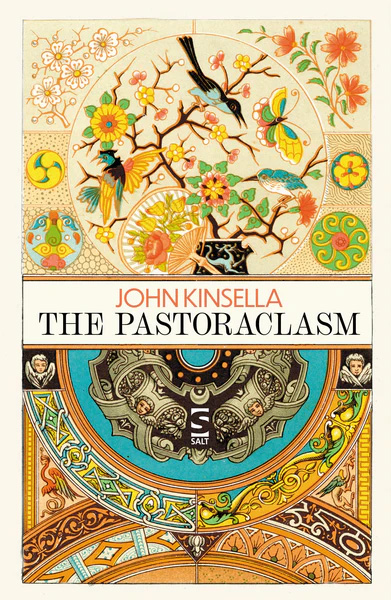– for Alan
Farm
The big rigs the big plants the big bins the big yields –
across the stubble-sharp ground the duel duels churlish
but blunt as ambition, no time for hesitation, dragging
the seeder the wishes and predictions, the first rains hope
running out as we seed dry daring rain to come
as from eucalyptus fringes the ringneck parrots’ call.
What you hear is the diesel caul and the delivery of smoko.
City
The school takes us in with open arms with spread wings
if the fees keep rolling in rolling like the header across
the grand design the prayer plan for grain accumulation – behave! –
full silos! – for a low ‘foreign matter’ count at testing time.
As removed as holidays, the thinking back the envisaging
life as it departs from the furrows from the turn of the tractor
the infinity of corners which even the largest blankest paddocks will have
the infinity of corners which even the largest blankest paddocks will have
Farm
We could do with the extra hands we could do with the kids
being home but we do this to give them another path out of windrows
and burning-off the big garden that we love and can’t see our
way out of the chaff, all contradictions we have foisted in front of us
the spray drum anathemas the conservative politics because
we can’t see how else but be conservative, the kids down
in the city hundreds of ks away are going to stray, we know
but warn them against that road taken though we know, we know.
City
Rather be reading Judith Wright than fencing
rather be reading Jack Davis than herding
rather find my own way through though a few
extra dollars from hours spent out there is a sunset
in my pocket is the oily residue of ad hoc repairs
is the hessian windbreak over thin bare topsoil
is the glint off the shed when the galahs make an eclipse.
Taste the superphosphate, smell the chook pen,
fret over the fruit trees, tap the water tanks . . .
Farm
Each compulsion to control to eradicate
is legacy is leeway is prestige is kudos
down there with the city kids, we know,
and who is to call them out when we
did it ourselves as young ones – the stamping
out of the mouse plagues, the trophyism
that seems like warning and a forgotten
bill of isolation, a speaking out from space?
They think they grow out of it and we are stuck
on the back of the ute with a spotlight,
but we do it for them, we do we do. We see,
we see the wrong and the right of it. We make
the call, and set the alarm earlier and earlier.
They grow away from our ways though we
want the oldest one to come back to us,
to come back and take on the strain,
to say, This is my calling, I am expected.
The voice they expect us to use up here,
but we don’t, we are caught in conventions
in the pastoral just as they wish it away.
City
I am not going back – only to visit
for special occasions, to show off my
lover, my new pact and love that isn’t
a farm broken up across title deeds,
with erosions and salinity that are damned
if you do damned if you don’t, trenched
to drain the dry when the downpour
comes and makes lowland a quagmire.
I have suggestions – stuff I have learned . . .
trees to plant, more precision, the place
of community art, a revolution
in the sports centre, so far away.
But no, I will go elsewhere
and remember, recall where
I came from, its immensity,
its imprint, its impression
of industry in the big garden
so far from the city, from small towns.
This artifice we are dragged into.
Image © USGS








